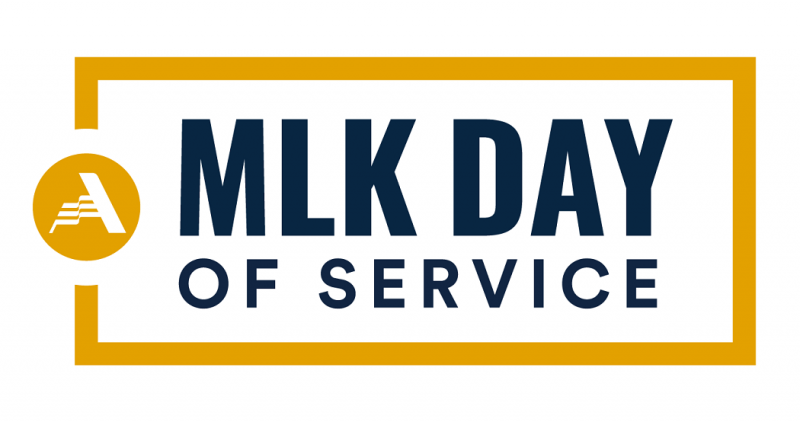
JAN. 18, 2021—Today, we celebrate the life and legacy of Martin Luther King Jr. Though he is most known for his fight against racism, King once said “injustice anywhere is a threat to justice everywhere.” The third Monday in January of each year marks the passing of King’s birthday—Jan. 15—but it’s also the only federal holiday identified as a national day of service. This designation encourages all Americans to volunteer in their communities, address societal challenges, and connect to the life and teachings of Martin Luther King Jr.
On the 26th anniversary, this national holiday carries the theme “Make it a Day On, Not a Day Off.” As our country faces growing environmental concerns—from a record number of hurricanes in the Atlantic to rising seas to a record number of acres burned by wildfires—this day of service is a reminder that we must work to ensure all citizens have access to a clean and healthy environment.
Environmental hazards don't affect us all equally. For example, a 2018 study revealed that air polluting facilities negatively impacted Black communities at a rate 1.54 times higher than the overall population. An earlier study noted that “oil and gas wastewater disposal wells, which are used to permanently inject wastewater from hydraulic fracturing (fracking) operations, were over 2.04 times as common in areas with 80% people of color or more than in majority white areas.”
Environmental justice—the fair treatment and meaningful involvement of all people regardless of race, color, national origin, or income, with respect to the development, implementation, and enforcement of environmental laws, regulations, and policies—is a fight we can all contribute to. By doing so, we honor King's legacy and work to create a cleaner, safer, and more just world for everyone.
On Martin Luther King Jr. Day, consider how you can join the fight for environmental justice and participate in the national day of service. Here are some ways you can learn more about the environment you live in, contribute to your community and ecosystem, and help ensure that environmental justice is alive and well in your area.
- Learn more about the land you live on and the historical stewards of that land. Before European settlers arrived in North America, Indigenous people lived on and stewarded this land. For centuries, the American government has made and broken treaties with Indigenous people, but Indigenous communities continue to advocate for the land and its protection. Learn more about the Indigenous people that stewarded your land through this mapping tool. Become familiar with your local tribes (some of which may not be recognized on a state or federal level) and find ways to support them in their ongoing stewardship. You can also check out some of the ways that OR&R is partnering with Indigenous communities to advance our shared goals.
- Plant native plants. Many of our natural spaces have been taken over by invasive species such as English ivy and Himalaya blackberry, which outcompete and displace native plants. Find and plant plants native to your area that can provide pollen and food for native animals, like the rapidly fading Monarch butterfly.
- Participate in a solo or small group cleanup in your community. Clearing your community of trash is a great way to give back. If it’s safe to do so, join a cleanup hosted by a local organization, or gather everyone in your household and start your own cleanup—it’s easy! You can even clean up your community on your own, and track the trash you find using the Marine Debris Tracker app. By picking up the trash we find on our local streets, in our rivers and streams, and on our beaches, we can prevent that waste from becoming marine debris. Not ready to head outside? There are plenty of ways you can reduce waste, build positive habits, and prevent marine debris from the comfort of your own home.
- Support Black, Indigenous, and people of color in science, technology, engineering, and math fields. BIPOC are represented far less in STEM fields than other ethnic or racial groups. A 2017 Pew study noted that while 13% of white people working in STEM jobs have experienced discrimination at work due to their race or ethnicity, that percentage is 62% for Black people. Advocate for data-backed approaches to increasing diversity and inclusion in your workplace, learn about BIPOC scientists (such as NOAA scientists Dr. Ambrose Jearld, Rear Admiral Evelyn Fields, Georgia Madrid, and Evan Forde, award-winning engineers, award-winning BIPOC women, and more), and share their stories with children. Learning about BIPOC scientists can help change children’s perception of what a scientist looks like and who belongs in this field.
- Learn more about the connection between Martin Luther King Jr. and environmental justice. King’s fight against racism was about more than fair treatment—it was about preventing atrocities like the drinking water crisis in Flint, Michigan, which disproportionately impacted people of color. In this blog from the Centers for Disease Control and Prevention, learn more about the connection between King’s fight and today’s environmental justice movement.
- Connect with your local government. Your local government officials are here to serve you. Let them know through social media, emails, phone calls, or letters that you care about environmental justice. If there's a cause in your area—like a new development along a river or shoreline—identify your elected officials and ask that they make environmental justice a top priority in the development and clean up of local areas. You can even read case studies to see how various cities have cut down on waste, and encourage your leaders to do the same.
